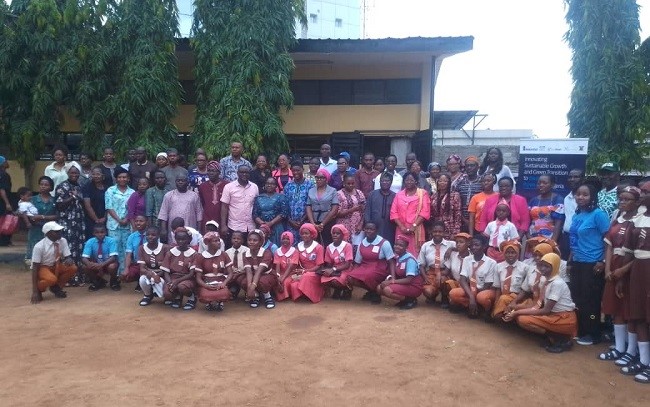Danida Project – an initiative aimed at tackling period poverty in Nigeria through the enhanced production and sales of safe, recyclable sanitary pads, empowering girls and women – has been launched by WaterAid in Lagos.

Period poverty refers to the lack of access to menstrual products, sanitation facilities, and adequate education related to menstruation.
During the project launch and inception meeting in Lagos on Thursday, June 26, 2025, Grace Uwadiale of WaterAid noted that the Danida project’s main focus is on improving access to clean water, sanitation, and hygiene (WASH).
“It specifically aims to empower communities through sustainable solutions, promoting human rights, and addressing issues like period poverty. The initiative also supports green growth, enhances resilience to climate change, and fosters innovation in WASH-related technologies,” she stated.
Uwadiale disclosed that the project seeks to address period poverty in Nigeria by providing safe, recyclable sanitary pads and empowering women and girls while promoting local production, environmental sustainability and a commercially viable business model through improved market access and behavioral change.
According to her, “the product will be produced locally in Nigeria thereby serving as a means of empowering women and creation of jobs through skill development in manufacturing”.
In his remarks, Mahmood Adegbite, Permanent Secretary, Office of Drainage Services, Ministry of Environment and Water Resources, commended WaterAid for venturing into such a laudable project that will be of immense benefit to the female gender.
Adegbite, who was represented by Mr. Akinwunmi Babatunde, Deputy Director in the Ministry, noted: “Based on those local productions, it means that it can empower people. And the main aim of this programme is innovating sustainable goods and the green transition to end period poverty in Nigeria and I’m really very keen on that aspect of period poverty.”
On her part, Mrs. Rianat Ajibike Onigbanjo, Permanent Secretary, Women Affairs and Poverty Alleviation (WAPA), submitted: “Women with better knowledge of menstrual hygiene and practices are less vulnerable due to reproductive tract infraction and overgrowth, and increasing awareness and knowledge of the health and disability of a woman depends on poor menstrual hygiene practices affecting millions of women and young girls.”
Onigbanjo, who spoke through Mrs. Folashade Adeyanju, added: “The Ministry of Women and Child Parenthood’s regulation has always regarded success in the past menstrual hygiene rule to the distribution of sex-free pads, sanitisers, soaps, menstrual cards, advice to the disabled people, governments and NGOs. This helps to create more awareness to the vulnerable and illiterate women in rural states.
“The Ministry also provides interactive mapping where women and girls are able to learn and discuss issues related to menstrual hygiene management, to participate in a talk on the use of pads instead of other materials that can be harmful to the body system.”
Dr. Omobolaji Gaji, Permanent Secretary, Office of Environmental Services, Ministry of the Environment and Water Resources, noted that the launch of Danida Project is not coincidental. According to him, “it’s something that is long overdue, and we appreciate WaterAid for taking the will and the heart to go into those projects, and we trust that they will be revived.
“We appreciate the work they have done. We appreciate everyone who has partnered with them. We thank you WaterAid and we hope to do more partnerships with you,” he submitted.
Dignitaries that graced the project launch and inception meeting include Mr. Henry Adenigba, Executive Director, Humanity Family Foundation for Peace and Development (HUFFPED); Prince Adeniran Ogunbanwo, CDC Chairman, Ikorodu North LCDA; Pastor Segun Fayemi, CDC Chairman, Ojodu LCDA; representatives from Ministry of Health, Ministry of Basic Secondary Education as well as Education District 2 and 6 in Lagos State, among others.
By Ajibola Adedoye
